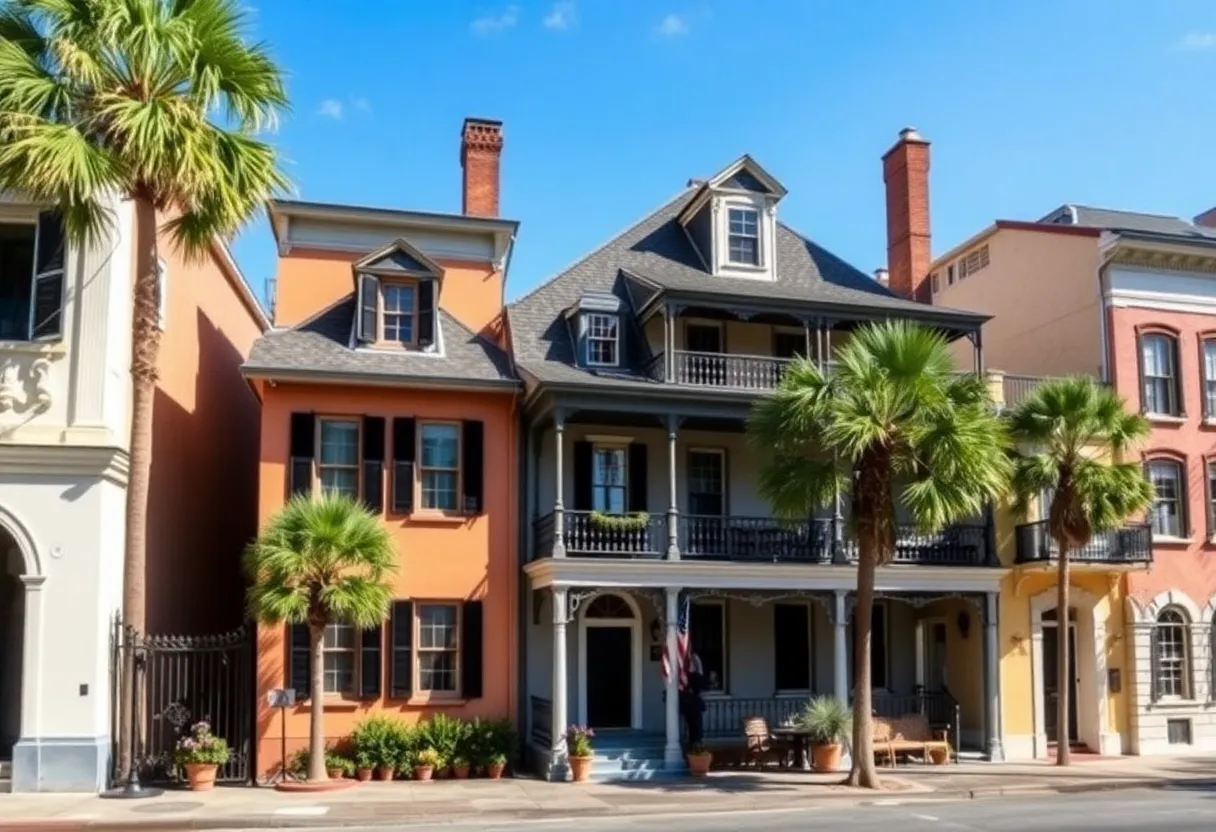News Summary
Charleston is undergoing a wave of restoration projects focused on its historic landmarks, spearheaded by local realtors and community organizations. Key initiatives include the renovation of a 140-year-old home and the restoration of significant sites like the Pine Tree Hotel. Challenges such as concealed damage and adherence to preservation guidelines underscore the importance of these efforts in maintaining the city’s unique architectural heritage. Community leaders are dedicated to ensuring that these historic sites are preserved for future generations.
Charleston is currently experiencing a surge of significant restoration projects aimed at preserving its historic landmarks and cultural heritage. Amid ongoing efforts, various stakeholders, including local realtors, foundations, and the community, are focused on renovating vital historical sites that contribute to the city’s unique architecture and rich history.
Local realtor Danielle Stazio is guiding clients who are undertaking a full historic renovation of a 140-year-old home on Wentworth Street. This restoration project, described as a blend of craftsmanship and preservation, is committed to honoring Charleston’s architectural legacy. Stazio highlights the significance of such undertakings in maintaining the narrative of Charleston’s history, ensuring that future generations can appreciate the city’s distinct charm.
Prior to the renovation, the historic home had lain vacant and neglected for decades, presenting challenges typical of many historic restoration efforts. These challenges include concealed damage, outdated systems, and the complexities of adhering to preservation guidelines. Despite these hurdles, projects like this exemplify the commitment to preserving Charleston’s unique narrative.
In a broader context, the Historic Charleston Foundation has been awarded a $1.25 million grant from the Mellon Foundation for the restoration of the historic Pine Tree Hotel and Skeeta Beach Lounge located on Mosquito Beach. This beach has historical significance as a gathering site for African Americans and the Gullah Geechee community during the Jim Crow era. The restoration aims to reinstate the hotel and restaurant into an operational state, contributing to local economic development and community revitalization. Project leader William “Cubby” Wilder, a descendant of the original Mosquito Beach owners, is dedicated to celebrating the beach’s rich cultural heritage and communal practices.
Further highlighting the commitment to safeguarding Charleston’s cultural landmarks, the New Tabernacle Fourth Baptist Church in downtown Charleston is pursuing a restoration initiative after significant damage rendered its sanctuary unsafe. Closed for approximately four years due to safety concerns, the church is working alongside the Historic Charleston Foundation and Artis Construction to evaluate current conditions and secure funding for ongoing restoration. Recent support includes a $100,000 grant from the National Trust for Historic Preservation, which funds planning efforts for this essential restoration.
Additionally, the Charleston County Courthouse, which was built in 1753, completed a $2.5 million restoration project addressing extensive stucco damage while restoring its historical features. This courthouse is an essential part of Charleston’s “Four Corners of the Law” and managed to remain operational throughout the restoration process, balancing historical preservation with everyday judicial functions.
Despite these positive strides, the Preservation Society of Charleston has identified three culturally significant landmarks facing uncertain futures if preservation efforts are not prioritized. These include the Folly Beach cottage, associated with the creators of “Porgy and Bess,” which is currently up for sale and in critical need of preservation. The Nine Mile Fork Rosenwald School, the last intact Rosenwald School in Charleston County, is also for sale and at risk of losing its historical identity. Lastly, the Tobin-Boyd Elementary School, one of the last segregated schools in Charleston, is in jeopardy of demolition as current owners pursue coastal zone permits.
As Charleston continues its journey of restoration and preservation, community leaders and organizations remain dedicated to ensuring that vital historical sites retain their significance and charm for generations to come.
Deeper Dive: News & Info About This Topic
HERE Resources
Gullah Roots Concert Celebrates Cultural Heritage
Charleston’s Tourism Industry Hits Record Economic Impact
Senate Showdown: Lawyer Appointments Face Controversy
Lawyers Embrace AI for Case Value Evaluation
Charleston Tourism Hits Record Economic Impact
Charleston Tourism Revenue Surges in 2024
South Carolina’s Thriving Tourism Sector Fuels Economic Growth
Trump Revives Drug Pricing Initiative: A Comprehensive Overview
Trump Restructures Higher Education with Executive Orders
Charleston’s Archaeological Dig Reveals Insights into Colonial Lives
Additional Resources
- Live 5 News: $1.25 million grant will help restore historic Mosquito Beach
- ABC News 4: Historic New Tabernacle Fourth Baptist Church seeks restoration funds
- ENR: Restoration gives 272-year-old Charleston courthouse new life
- CHStoday: Three Charleston cultural landmarks lack preservation protection
- Charleston City Paper: City Gallery shows preservation through art
- Wikipedia: Restoration architecture
- Google Search: Charleston historic preservation
- Google Scholar: Charleston historic landmarks
- Encyclopedia Britannica: Historic preservation
- Google News: Charleston restoration projects

Author: STAFF HERE CHARLESTON
The CHARLESTON STAFF WRITER represents the experienced team at HEREcharleston.com, your go-to source for actionable local news and information in Charleston, Charleston County, and beyond. Specializing in "news you can use," we cover essential topics like product reviews for personal and business needs, local business directories, politics, real estate trends, neighborhood insights, and state news affecting the area—with deep expertise drawn from years of dedicated reporting and strong community input, including local press releases and business updates. We deliver top reporting on high-value events such as the Spoleto Festival USA, Charleston Wine + Food Festival, and the MOJA Festival. Our coverage extends to key organizations like the Charleston Metro Chamber of Commerce and the Charleston Museum, plus leading businesses in tourism and maritime industries that power the local economy such as South Carolina Ports Authority and the Charleston Visitor Center. As part of the broader HERE network, including HEREaiken.com, HEREbeaufort.com, HEREchapin.com, HEREcharleston.com, HEREclinton.com, HEREcolumbia.com, HEREgeorgetown.com, HEREgreenwood.com, HEREgreenville.com, HEREhiltonhead.com, HEREirmo.com, HEREmyrtlebeach.com, HEREnewberry.com, HERErockhill.com, HEREspartanburg.com, HEREaustin.com, HEREcollegestation.com, HEREdallas.com, HEREhouston.com, and HEREsanantonio.com, we provide comprehensive, credible insights into South Carolina's dynamic landscape.





